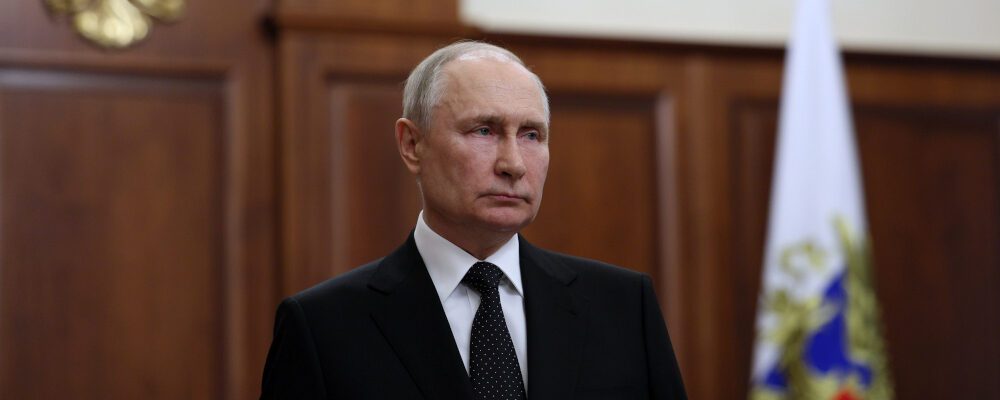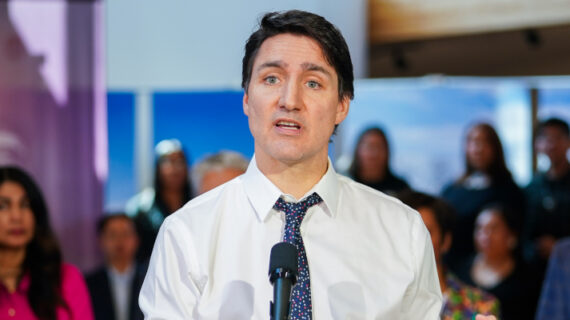What should we be taking away from this weekend’s bizarre events in Russia?
First, it’s obvious that Russian President Vladimir Putin has been massively weakened by the failed coup attempt (yes it was a coup in the making, more below) led by Wagner CEO Yevgeny Prigozhin. This Borat-like character has exposed just how precarious Putin’s grasp on power is and the extent his failed war in Ukraine has created deep divisions in the Russian military that are now surfacing as outright rebellion.
Key insight: there is no conceivable way for Prigozhin to get thousands of his heavily-armed fighters to within just a few hundred kilometres of Moscow in mere hours without high level collusion occurring between Wagner forces and elements in the Russian military. Simply put this wasn’t a “March for Justice” led by a lone, deranged and enraged mercenary CEO.
The conspicuous absence of any armed resistance by Russian Army formations or the Russian Air Force strongly indicate that Prigozhin had to have enjoyed some combination of tacit and active support from leading Russian generals who are deeply dissatisfied with the war and its mismanagement by Putin and his likely soon-to-be-departed defence minister, Sergei Shoigu. Don’t take my word on it. In one of the thousands of head scratching vignettes from the weekend none other than uber Putin ally and former Russian President Dmitry Medvedev commented publicly that “The unfolding of current events…fits in with the plan of a very well-thought-out and organized coup d’etat and the participation in the mutiny of the individuals who earlier served in the elite units of the Russian Armed Forces.” Emphasis mine.
In short, Putin’s regime just had a near-death experience. Regardless of what steps Putin takes now to try and consolidate power, the spell of omnipotence he successfully wove and wielded over the course of two plus decades as Russia’s supreme leader is irreparably broken. And, more worrying for Putin and his clique, the so-called silovikior or enforcers, is that the same grievances within this military that allowed Prigozhin to within striking distance of Moscow are sure to outlive this weekend, festering and threatening his rule as paramount leader at any time.
The second major implication of the last 48 hours of turmoil in Russia is likely a rapid and lasting shift in how Western powers are thinking about the future of the war in Ukraine. Up to this weekend real credence could be given to pledges by the Biden administration and their NATO allies that the continued arming of the Ukraine military would continue regardless of the outcomes or the progress of the current counteroffensive. This has now changed.
The U.S. and Europe rightly have a deep and abiding fear about the geopolitical disaster that is the rapid collapse of the Russian Federation. The world dodged this bullet in the late 90s. Today, as then, it represents a true polycrisis involving the immediate risk of the loss of command and control over tactical nuclear weapons to self-appointed warlords like Ramzan Kadyrov; the rush of regional powers such as Turkey, China and Iran into a power vacuum all bent on expanding their spheres of influence by pitting former republics against each other; and a proliferation nightmare whereby some Russian republics inevitably commandeer strategic nuclear arsenals on their lands.
The implosion of the Russian Federation would not just be a “risk-on” event for the region. It could well morph into a multi-decade risk premia that the liberal international order can ill afford, sapping what scarce resources currently exist to underwrite the global coordination needed to address complex threats from climate to AI to pandemics. The last thing the West wants to do is add to the wall of worry we are currently climbing the intractable problem of picking up the pieces of a shattered Russia.
The third development out of the weekend is that the world has taken another step towards breaking the 75-year taboo on the use of nuclear weapons. Russian doctrine regarding the first use of a nuclear weapon, tactical or strategic, is clear. It must involve an attack “which threatens the existence of the state itself.” This weekend demonstrates, in no uncertain terms, a mortal connection for the Russian leadership between the war abroad and the destruction of the regime at home. And, rest be assured for Putin and his ilk the regime is the state.
This isn’t to say Putin will now use a nuclear weapon. It is rather to point out that we are closer, in terms of context, to the point where Moscow could be prepared to use nuclear weapons in order to “de-escalate” and terminate the war quickly thereby allowing the redeployment of loyal elements of the military to the homefront to protect against another insurrection.
In sum, Western governments now have a powerful proof-point of just how weak Putin’s hold on power is and it is far more fragile than they ever imagined up to this point in the conflict. Avoiding a collapse of the Russian regime and managing the growing risk of Moscow breaking the nuclear taboo will now be the West’s paramount policies. They will trump previous joint NATO-Ukraine war aims such as pushing Russian troops out of Donbas or severing their land bridge to Crimea and most certainly trying to expel Russia completely from Crimea and Sevastopol.
Ironically or not, Prigozhin’s failed coup has all but guaranteed that the current counter offensive will be Ukraine’s last. The behind-the-scenes pressure, especially from Europe’s NATO members who are most exposed to the risk of fragmented Russia and understandably fearful of nuclear escalation, to move quickly to the negotiating table will be relentless.
This weekend was a watershed moment in this conflict. Ukraine and NATO’s strategic interests are no longer aligned. The cold hard calculus that will now guide the future course of the war is one where the rewards associated with victory over Russia in Ukraine is not worth the risks associated with courting the implosion of Putin’s destabilized regime or creating the preconditions for a desperate leader to justify acting on stated nuclear doctrine.




